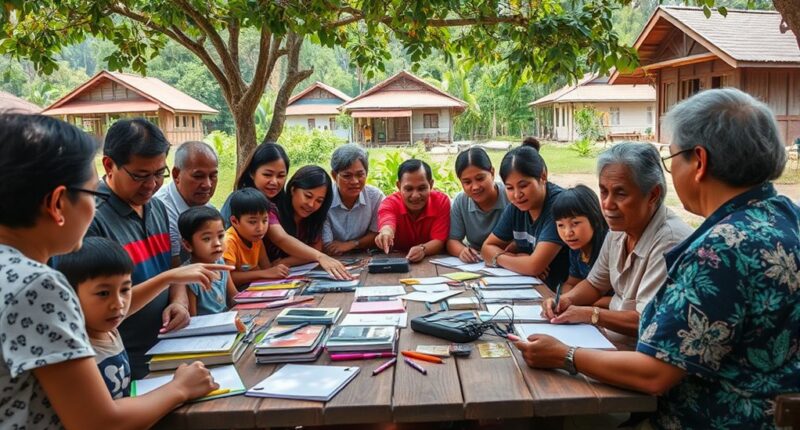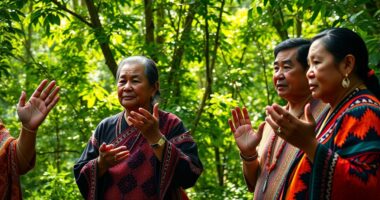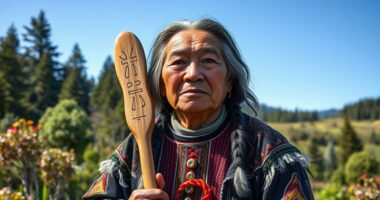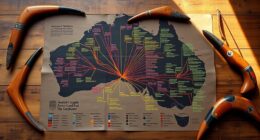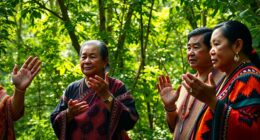Developing community dictionaries helps you preserve your local vocabulary and cultural identity for the future. By documenting unique words and phrases, you guarantee your community’s stories and traditions stay alive. Engaging residents and elders makes the collection authentic and meaningful. Digital tools make it easier to organize, update, and share this knowledge widely. If you want to learn how to create a lasting linguistic resource, keep exploring these strategies and ideas.
Key Takeaways
- Engage community members, elders, and language enthusiasts to ensure authentic and accurate vocabulary collection.
- Use digital platforms to create centralized, easily accessible databases for organizing and updating community words.
- Document local words, phrases, and their cultural context to preserve linguistic heritage for future generations.
- Encourage ongoing contributions to keep the dictionary dynamic, reflecting language evolution and emerging terms.
- Promote community pride by involving residents in the preservation process and sharing the digital archive widely.
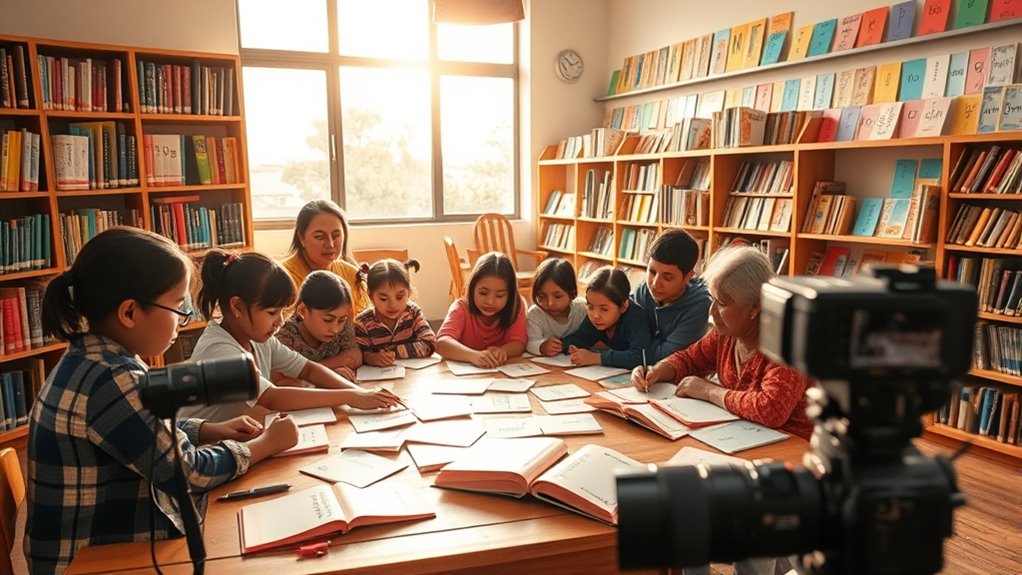
Have you ever considered how a community’s unique words and phrases can strengthen its identity? These words aren’t just vocabulary; they carry stories, traditions, and shared experiences that shape who you are. Developing community dictionaries is a powerful way to capture this language before it fades away. When you document local terms and expressions, you’re actively participating in linguistic preservation, guaranteeing that future generations can connect with their roots. Instead of letting these words vanish with time, you can create a lasting record by leveraging digital archiving. Digital tools make it easier than ever to collect, organize, and store community vocabulary in accessible formats. With a digital archive, you can compile words, phrases, and their meanings in one centralized database that’s easy to update and share. This approach not only preserves language but also allows community members to contribute, edit, and expand the dictionary over time. As you gather local expressions, you help keep the linguistic diversity alive, celebrating the richness of your community’s dialects and idioms. Digital archiving also makes it possible to safeguard these words against physical deterioration or loss due to natural disasters, decay, or neglect. Plus, it enables wider dissemination—people from outside the community can learn and appreciate its language, fostering cultural exchange and understanding. When developing a community dictionary, you should involve local residents, elders, and language enthusiasts. They can provide valuable insights into the origins and nuances of words that outsiders might overlook. By actively engaging your community, you ensure that the dictionary accurately reflects its linguistic heritage. Moreover, by digitizing this knowledge, you create a resource that’s easily searchable, allowing anyone to explore the unique vocabulary of your community at any time. It’s important to remember that language is dynamic; it evolves with new influences and innovations. Your digital archive can adapt accordingly, adding new words and phrases as they emerge. This ongoing process helps keep the dictionary relevant and vibrant. Developing a community dictionary through digital archiving isn’t just about recording words—it’s about celebrating and safeguarding your community’s identity. It’s a way to pass down stories, traditions, and cultural nuances for generations to come. When you commit to this task, you’re not only preserving language but also fostering a sense of pride and continuity within your community. It’s a meaningful effort that ensures your community’s voice remains strong and alive in the digital age.
Frequently Asked Questions
How Can I Involve Diverse Community Members in Vocabulary Collection?
You can involve diverse community members by hosting inclusive workshops and listening sessions that emphasize cultural inclusivity. Encourage everyone to share their unique words and stories, highlighting the importance of language preservation. Use multilingual materials and create a welcoming environment where all voices feel valued. By actively engaging community members in these conversations, you foster a richer, more representative vocabulary collection that reflects everyone’s cultural backgrounds.
What Digital Tools Are Best for Creating Community Dictionaries?
You’d think creating a community dictionary was a solo project, but with digital mapping tools like Google My Maps and collaborative editing through platforms like Wikiford, it’s a team effort. These tools let everyone add and refine words in real-time, making vocabulary collection engaging and inclusive. So, embrace these tech marvels—they turn a simple project into a vibrant community effort, all at your fingertips.
How Do We Prioritize Which Words to Include in the Dictionary?
You should prioritize words based on their lexical significance and cultural relevance. Focus on terms that reflect your community’s identity, traditions, and daily life, ensuring they capture unique expressions and local knowledge. Engage community members to identify words that hold meaning and importance. By doing so, your dictionary will authentically represent your community’s language, preserving valuable cultural insights for future generations.
How Can Community Dictionaries Be Maintained and Updated Over Time?
Imagine your community dictionary as a garden that never stops growing. You keep it lush by gathering community feedback regularly and pruning outdated words. Implement an iterative revision process, where each update involves input from locals. This way, your dictionary stays fresh and relevant, thriving on ongoing care. By involving everyone and continuously revising, you turn a static list into a living, breathing record of your community’s evolving language.
What Are the Benefits of Developing a Community Dictionary for Local Culture?
Developing a community dictionary helps preserve heritage by documenting unique words and expressions, ensuring they aren’t lost over time. It fosters a strong sense of identity, connecting residents to their cultural roots. By actively recording local language, you create a valuable resource that celebrates your community’s uniqueness, promotes cultural pride, and encourages future generations to cherish and continue their traditions. This effort keeps your local culture vibrant and alive.
Conclusion
By creating community dictionaries, you help preserve local language and culture for future generations. This effort supports the idea that documenting vocabulary isn’t just about words; it’s about safeguarding identity and history. When you record and share these words, you prove that language evolves with communities, shaping their stories. So, by contributing today, you’re ensuring that future generations can explore their roots and understand who they are. Your work truly makes a lasting impact.
Mary is a passionate writer who brings creativity and a fresh perspective to our team. Her words have the power to captivate and inspire, making her an essential contributor to our content. Mary’s commitment to storytelling and dedication to promoting Indigenous culture ensures that her work touches the hearts of our readers. We’re fortunate to have her as part of our team.
